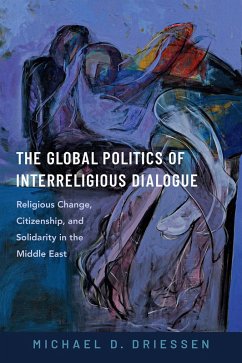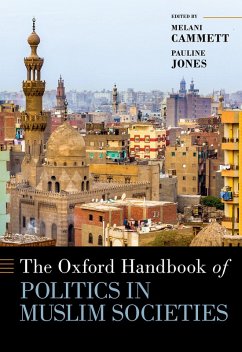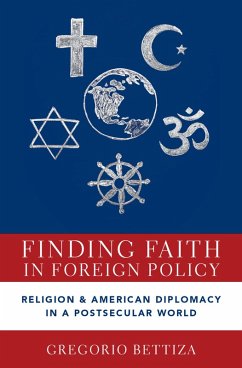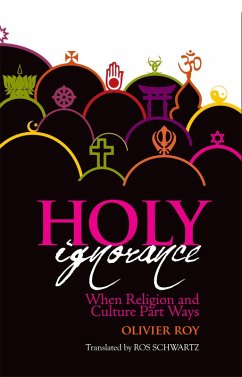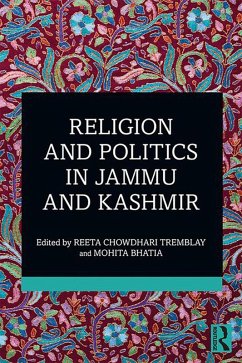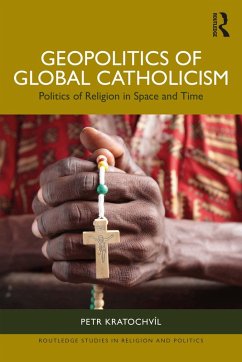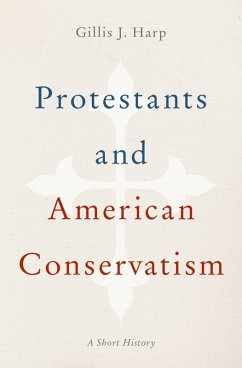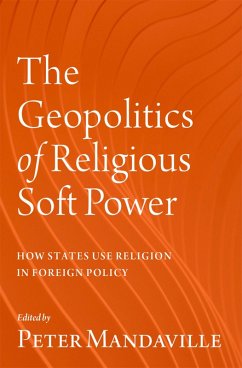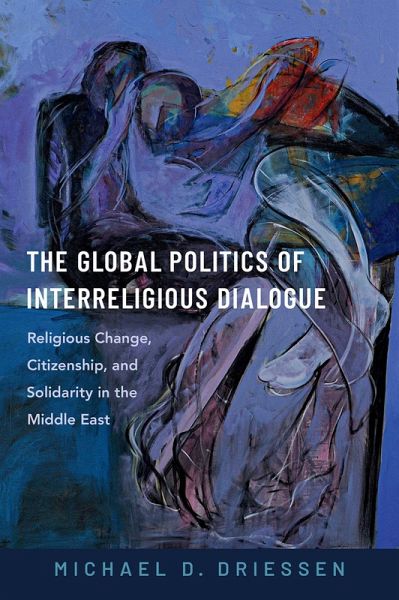
The Global Politics of Interreligious Dialogue (eBook, PDF)
Religious Change, Citizenship, and Solidarity in the Middle East
Versandkostenfrei!
Sofort per Download lieferbar
37,95 €
inkl. MwSt.
Weitere Ausgaben:

PAYBACK Punkte
19 °P sammeln!
Over the last thirty years, governments across the globe have formalized new relationships with religious communities through their domestic and foreign policies and have variously sought to manage, support, marginalize, and coopt religious forces through them. Many scholars view these policies as evidence of the "return of religion" to global politics although there is little consensus about the exact meaning, shape, or future of this political turn. In The Global Politics of Interreligious Dialogue, Michael D. Driessen examines the growth of state-sponsored interreligious dialogue initiative...
Over the last thirty years, governments across the globe have formalized new relationships with religious communities through their domestic and foreign policies and have variously sought to manage, support, marginalize, and coopt religious forces through them. Many scholars view these policies as evidence of the "return of religion" to global politics although there is little consensus about the exact meaning, shape, or future of this political turn. In The Global Politics of Interreligious Dialogue, Michael D. Driessen examines the growth of state-sponsored interreligious dialogue initiatives in the Middle East and their use as a policy instrument for engaging with religious communities and ideas. Using a novel theoretical framework and drawing on five years of ethnographic fieldwork, Driessen explores both the history of interreligious dialogue and the evolution of theological approaches to religious pluralism in the traditions of Roman Catholicism and Sunni Islam. He analyzes state-centric accounts of interreligious dialogue and conceptualizes new ideas and practices of citizenship, religious pluralism, and social solidarity that characterize dialogue initiatives in the region. To make his case, Driessen presents four studies of dialogue in the Middle East--the Focolare Community in Algeria, the Adyan Foundation in Lebanon, KAICIID of Saudi Arabia, and DICID of Qatar--and highlights key interreligious dialogue declarations produced in the broader Middle East over the last two decades. Compelling and nuanced, The Global Politics of Interreligious Dialogue illustrates how religion operates in contemporary global politics, offering important lessons about the development of alternative models of democracy, citizenship, and modernity.
Dieser Download kann aus rechtlichen Gründen nur mit Rechnungsadresse in A, B, BG, CY, CZ, D, DK, EW, E, FIN, F, GR, HR, H, IRL, I, LT, L, LR, M, NL, PL, P, R, S, SLO, SK ausgeliefert werden.




